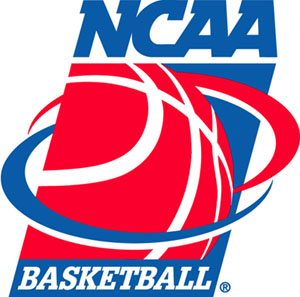Is the NCAA a talent cartel?
 Our men’s basketball team might attribute their seven game winning streak to lucky facial hair, but economist Thomas Grennes has a better explanation for UA’s athletic prowess: years of subtle competition with other members of the shadowy cabal that manipulates the world of college basketball the NCAA. In a recent article published by the Pope Center for Higher Education, he argues that the NCAA acts as a cartel to mitigate the price of athletic talent:
Our men’s basketball team might attribute their seven game winning streak to lucky facial hair, but economist Thomas Grennes has a better explanation for UA’s athletic prowess: years of subtle competition with other members of the shadowy cabal that manipulates the world of college basketball the NCAA. In a recent article published by the Pope Center for Higher Education, he argues that the NCAA acts as a cartel to mitigate the price of athletic talent:
College athletics is controlled by a powerful cartel. That cartel, managed by the National Collegiate Athletic Association (NCAA), provides a good livelihood for the adults involved—coaches, athletic directors, team doctors, sports announcers, and college presidents. Those adults receive handsome, competitive salaries that sometimes exceed $1 million per year.
But the athletes themselves miss out on the benefits of competition. Hoping to become highly-paid professional players (only a minuscule portion do), football and basketball players accept scholarships for room, board, and tuition. Payment is called a “scholarship” in order to qualify for tax advantages.
No college is allowed to pay more, and anything resembling a gift is exhaustively scrutinized. A star athlete cannot receive more compensation than an obscure teammate who sits on the bench most of the time.
Essentially, the NCAA is acting as a buyers’ cartel just as OPEC acts as a sellers’ cartel for oil-producing countries. It makes sure that the normal forces of supply and demand do not operate. If competition for outstanding athletes prevailed, outstanding athletes, like outstanding coaches, would be very well paid. Colleges don’t want to pay those high wages, and the NCAA is acting as their agent.
UA spends a lot (read: upwards of $32 million a year) on athletics, and officials have spent much of that money on the kind of competitive measures that fall outside the NCAA’s cartel regulations. Some of them are just lucky breaks: Lute Olson is probably the best human capital investment the university has ever made. Others are more calculated: facilities like the Richard Jefferson gym and services like extra tutoring and lax classes for athletes. All of them are substitutes for the wage competition that would take place in a competitive market for college athletic talent. But what’s wrong with extensive regulation from the NCAA? Well, consider professional drafts:
Perhaps the most extreme example of the cartel-like arrangement in these sports is the cooperation by colleges with the professional basketball and football drafts of college students. For example, when the NFL has its annual draft, each eligible player is selected by one team; all teams agree they will not offer jobs to draftees of other teams. If a player is drafted by Cleveland but wants to play in New York, his only option is to try to persuade Cleveland’s management to trade him to New York.
Americans wouldn’t tolerate such an arrangement anywhere else. Imagine if colleges gave the right to hire their electrical engineering graduates to a group of employers who would, one by one, have exclusive rights to negotiate with each graduate. The graduate would have to accept employment with the employer that “drafted” him, or search for a job outside electrical engineering. No one would think that fair, but the public accepts such a practice for sports.
There is a way to treat athletes in revenue sports fairly: pay them competitive salaries, just as coaches and other employees are paid. The best players would receive higher pay than average players, just as more productive employees do in many occupations. As a result of competition, some of the revenue now controlled by athletic directors and the NCAA would be transferred to the athletes who have a critical role in generating it.
Of course, many fans enjoy college sports specifically because they are extensively regulated to maintain the facade of the noble scholar-athlete and minimize the money game. But NCAA rules don’t minimize as much as mask: competition for talent still exists, it just takes forms more esoteric and inefficient than cash transfers.
I doubt that a truly competitive labor market for student athletes would be beneficial for the University of Arizona. We lost promising recruits like Jeff Withey, Brandon Jennings, and Emmanuel Negedu even under the current rules, and we can probably thank the cartel agreement for absorbing some of the impact of Olson’s unexpected retirement. But scrapping the college cartel would certainly compensate student athletes much more fairly for their significant, largely unpaid contributions to sports prestige and university coffers. Anyone at the Social Justice Center care to take up the cause?
(via Marginal Revolution, photo via flickr user Lucian Teo)


3 comments